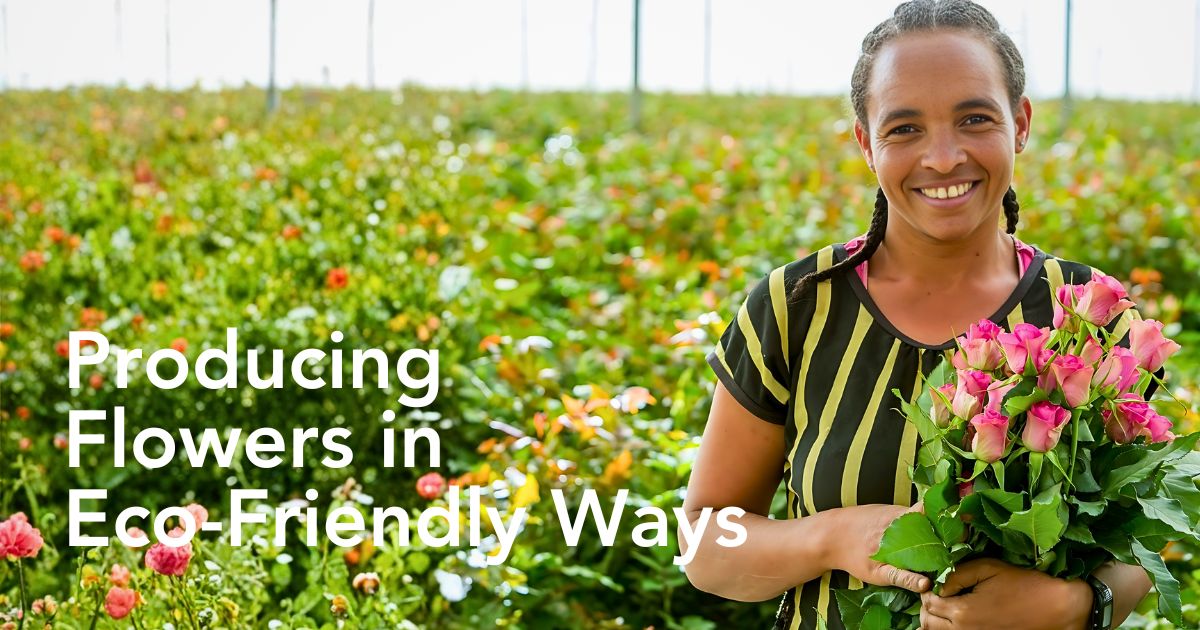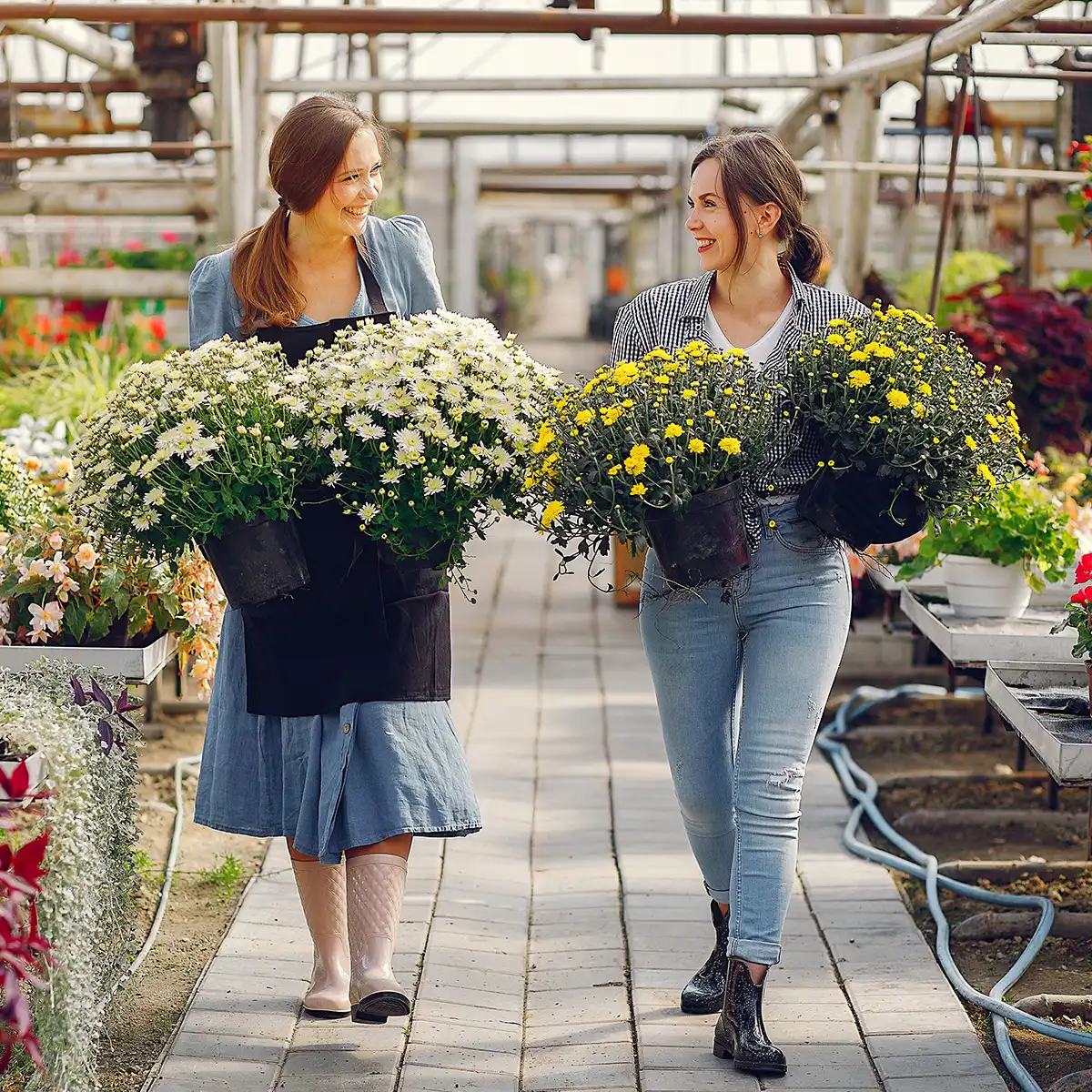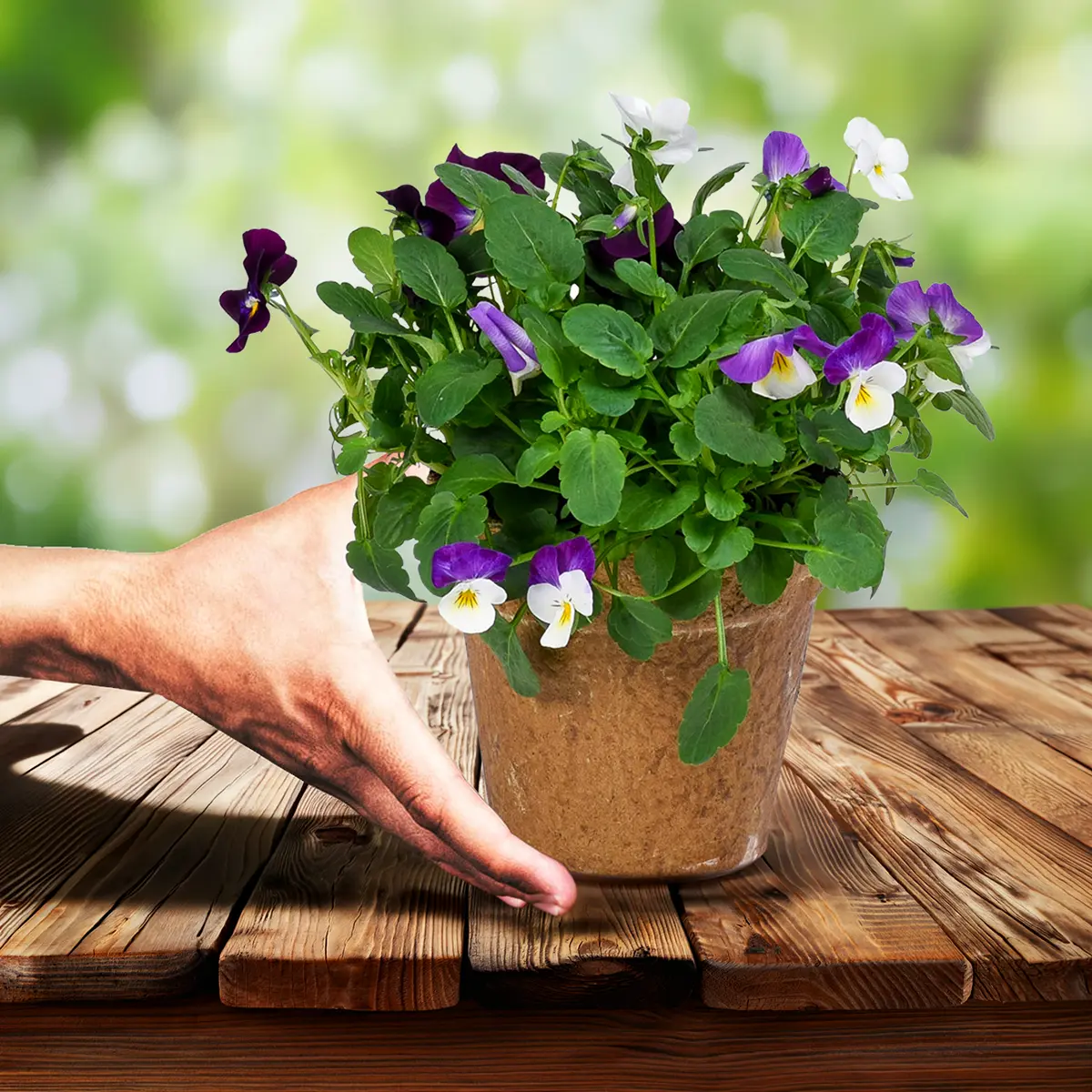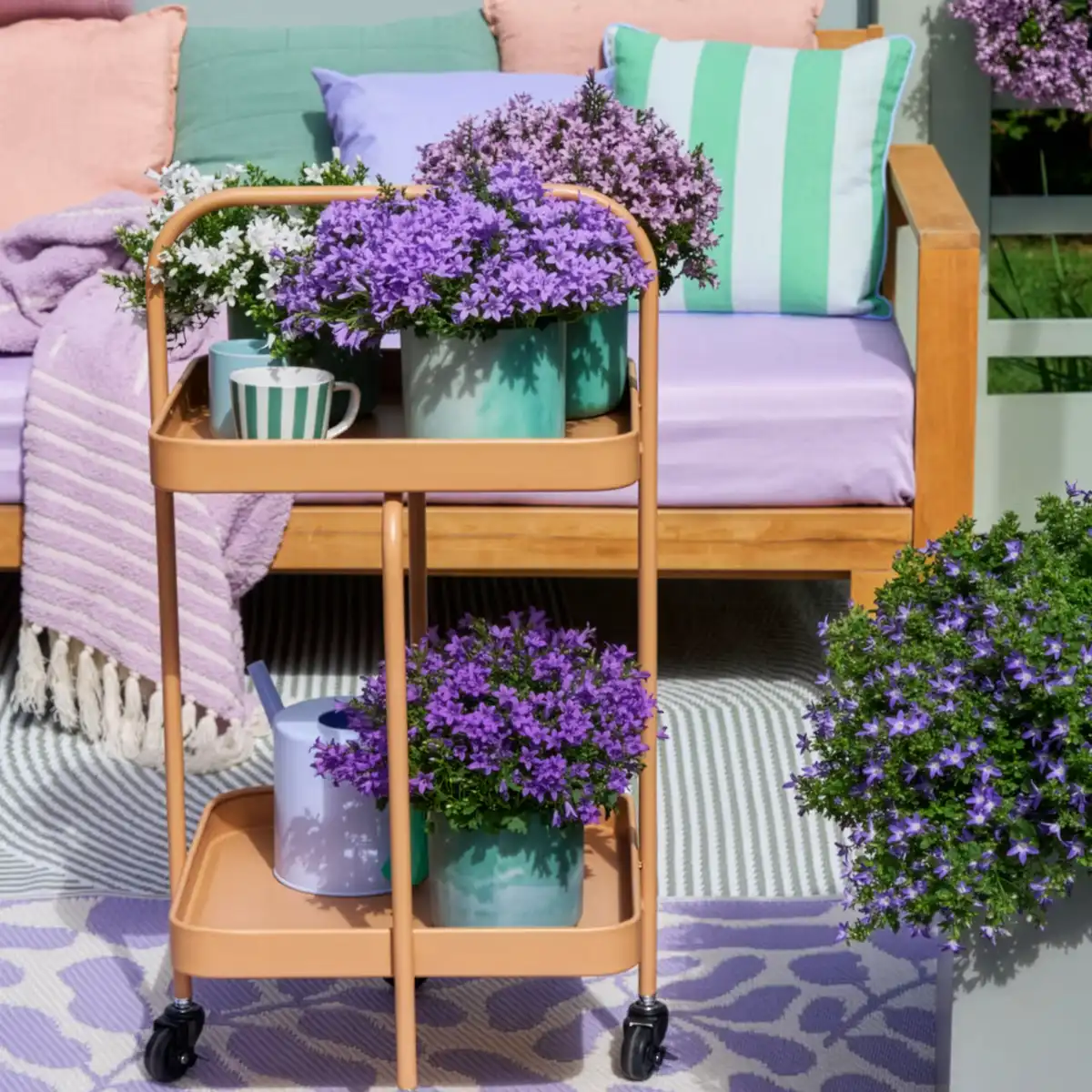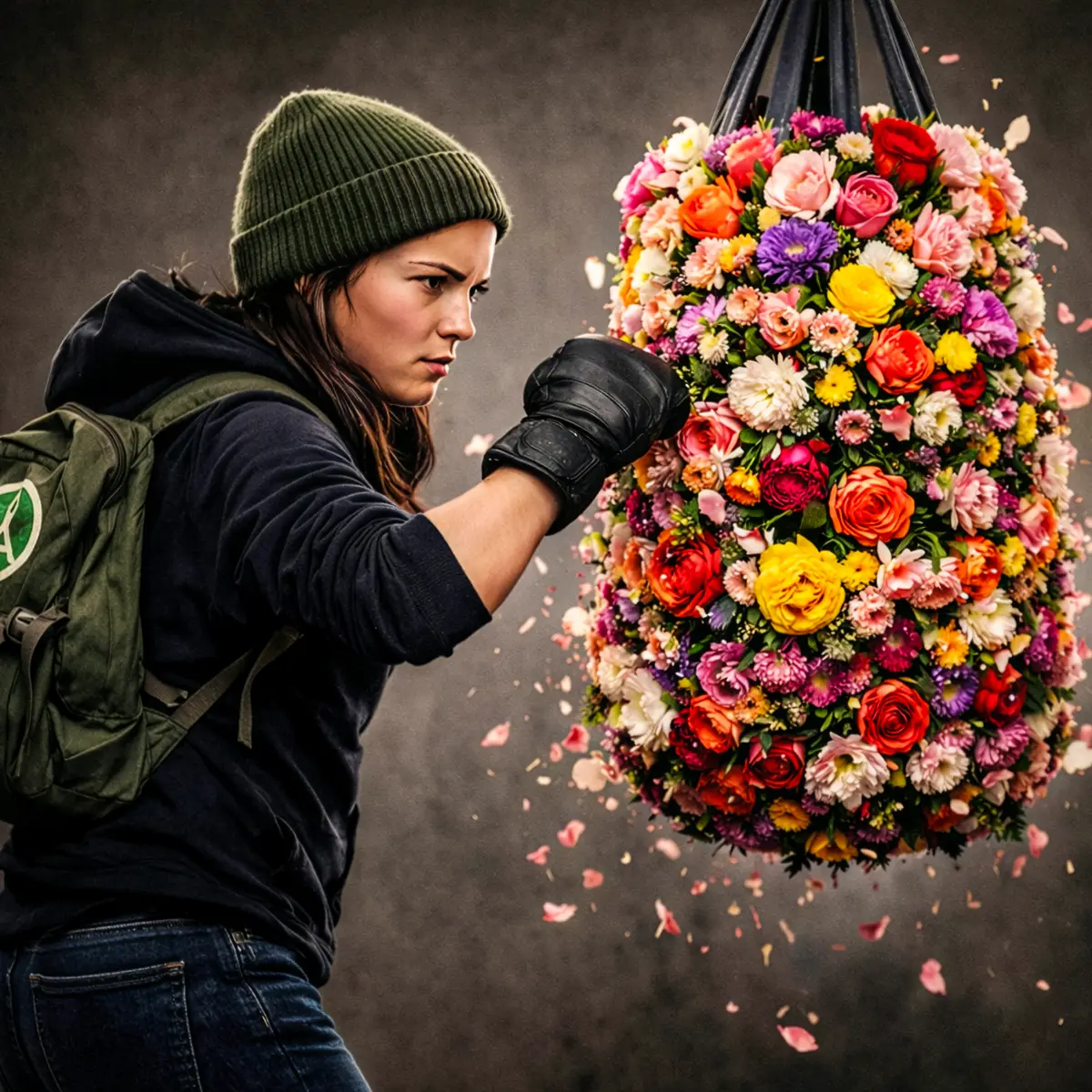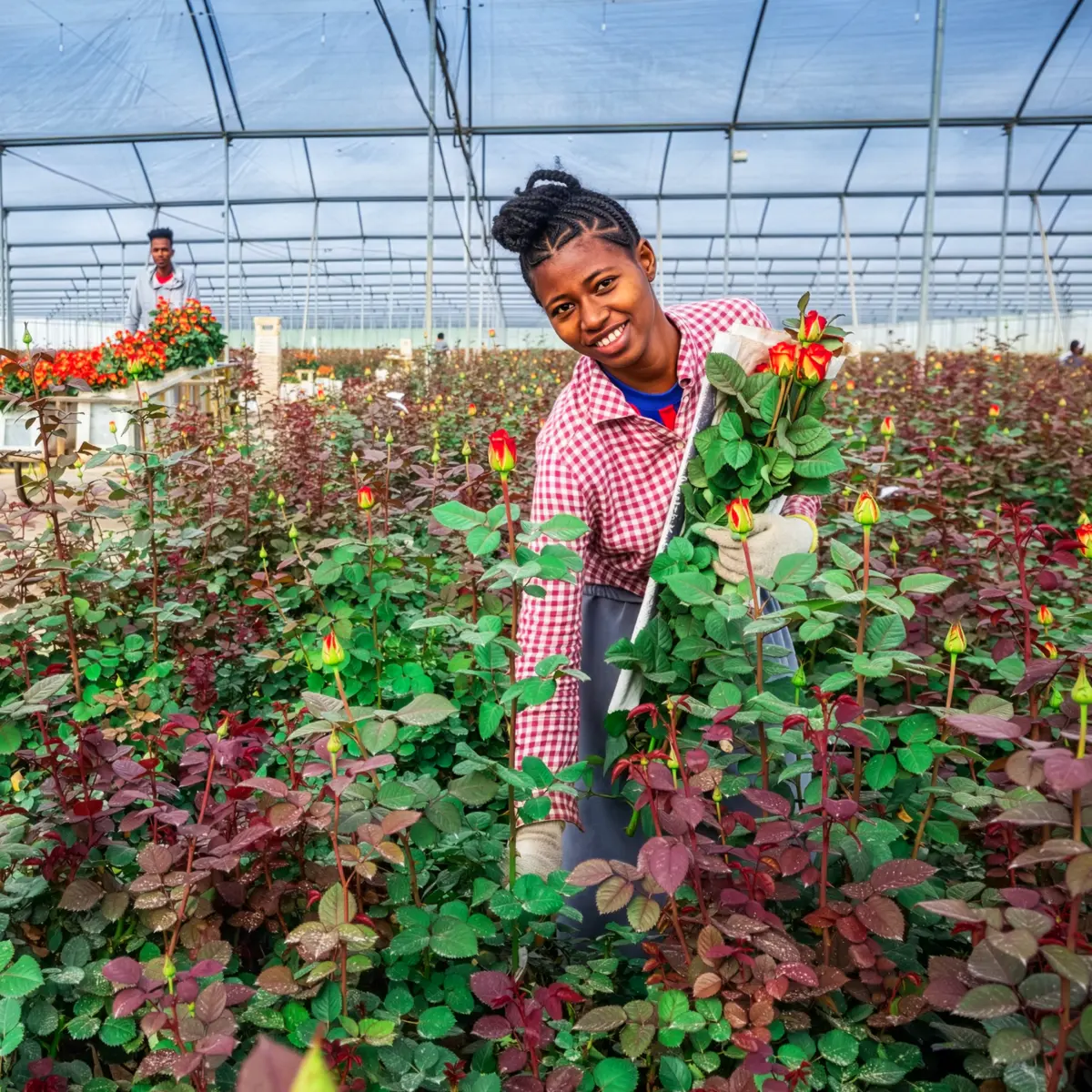Holla Roses BV, operating in Ethiopia as Ziway Roses PLC, has been recognized for its sustainability efforts at the inaugural Royal FloraHolland Sustainability Award 2025. The grower earned recognition for its fully circular approach to waste management, where all green waste from rose production is converted into compost, biogas, and vermicompost. The award ceremony, which took place during the annual Trade Fair Aalsmeer, saw Handelskwekerij Bruinen BV (overall winner) and Decorum grower, J&P Ten Have (third place), also awarded.
Recognition for Their Circular System
Ziway Roses, established in 2005 along Ethiopia's Lake Ziway, operates 42 hectares of Fairtrade quality roses. Their facility is part of a group of nurseries with a total area of more than 400 hectares. The grower primarily exports to the Netherlands.
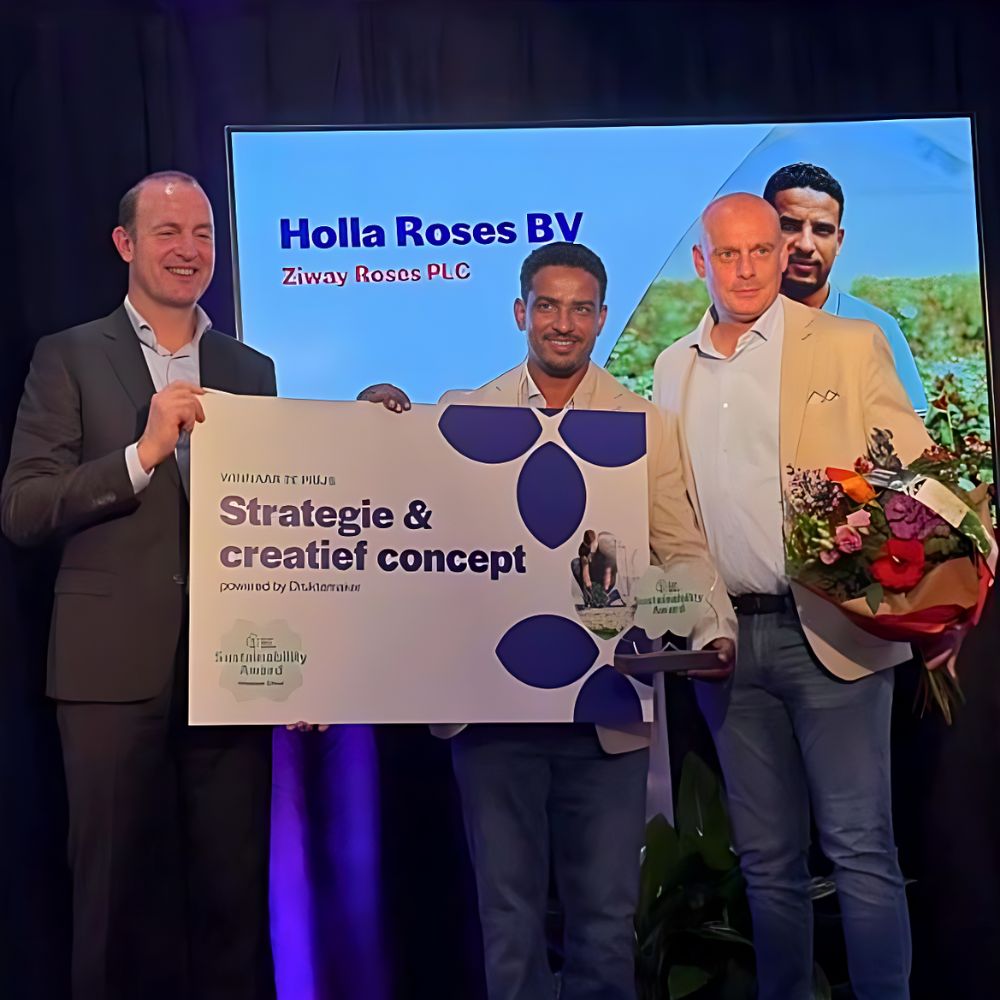
But it is their operations that have also attracted attention and interest. The grower focuses on a comprehensive waste conversion system that addresses varied environmental concerns. They run one of Africa's most ambitious zero-waste systems, where every component of their flower production residue is turned into a resource and not left to waste away.
For instance, all their green waste from rose cultivation is transformed into three key outputs. The biogas component provides renewable energy for farm operations, reducing dependence on fossil fuels. The vermicompost production uses earthworms to break down organic matter into nutrient-rich soil amendments, supporting plant growth without chemical fertilizers. Traditional composting methods complete the system, ensuring that organic waste cycles back into production as soil conditioner and plant nutrition.
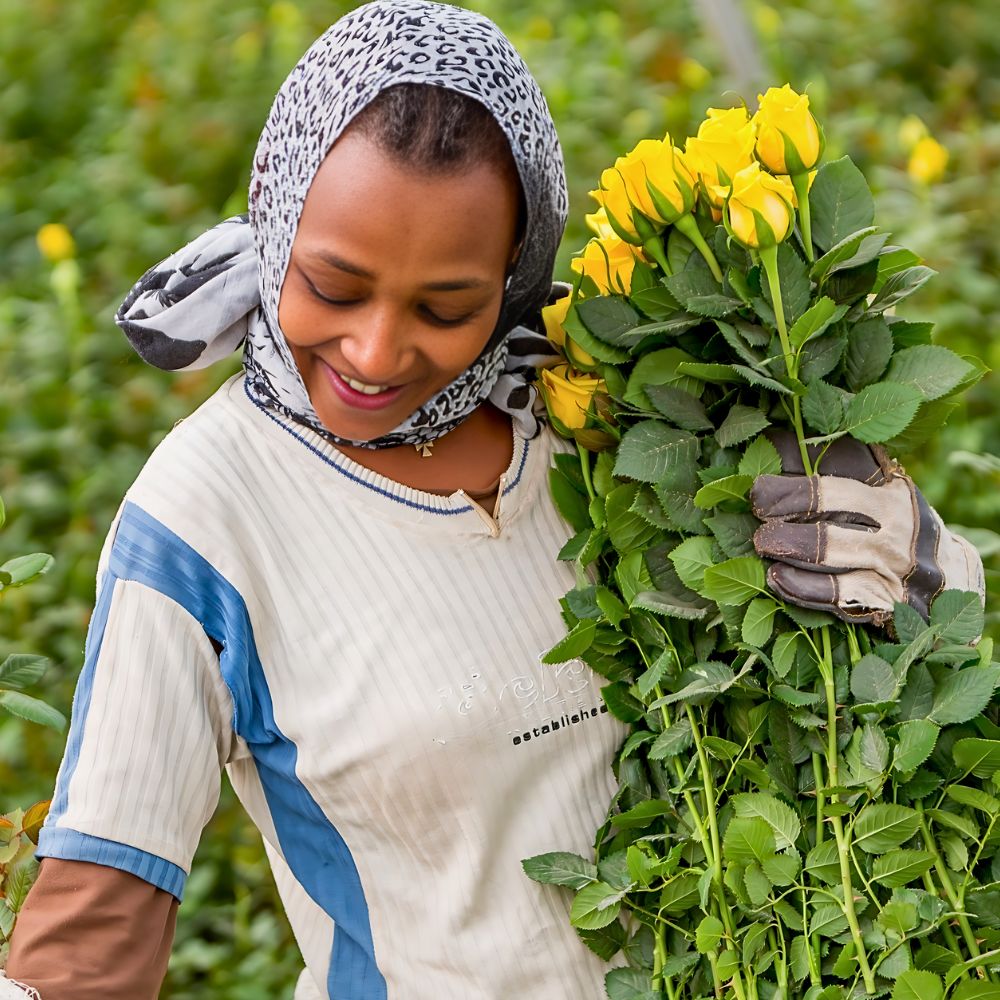
This closed-loop operation reduces emissions while generating clean energy and improving soil fertility. Implemented at a commercial scale, the system processes waste from the thousands of flower stems in a circular waste management approach that contributes to fertile soils, clean energy, and lower emissions.
During the awards, an independent jury of industry experts evaluated this grower's approach and praised their proactive views, noting that innovations such as this are scalable and can be applied to other farms, which, in turn, contributes to a more sustainable international floriculture sector. Receiving the award, Ermiyas Solomon, the Operational manager at Ziway Roses, thanked the entire team for their commitment and also all those who recognized their efforts and supported the initiative.
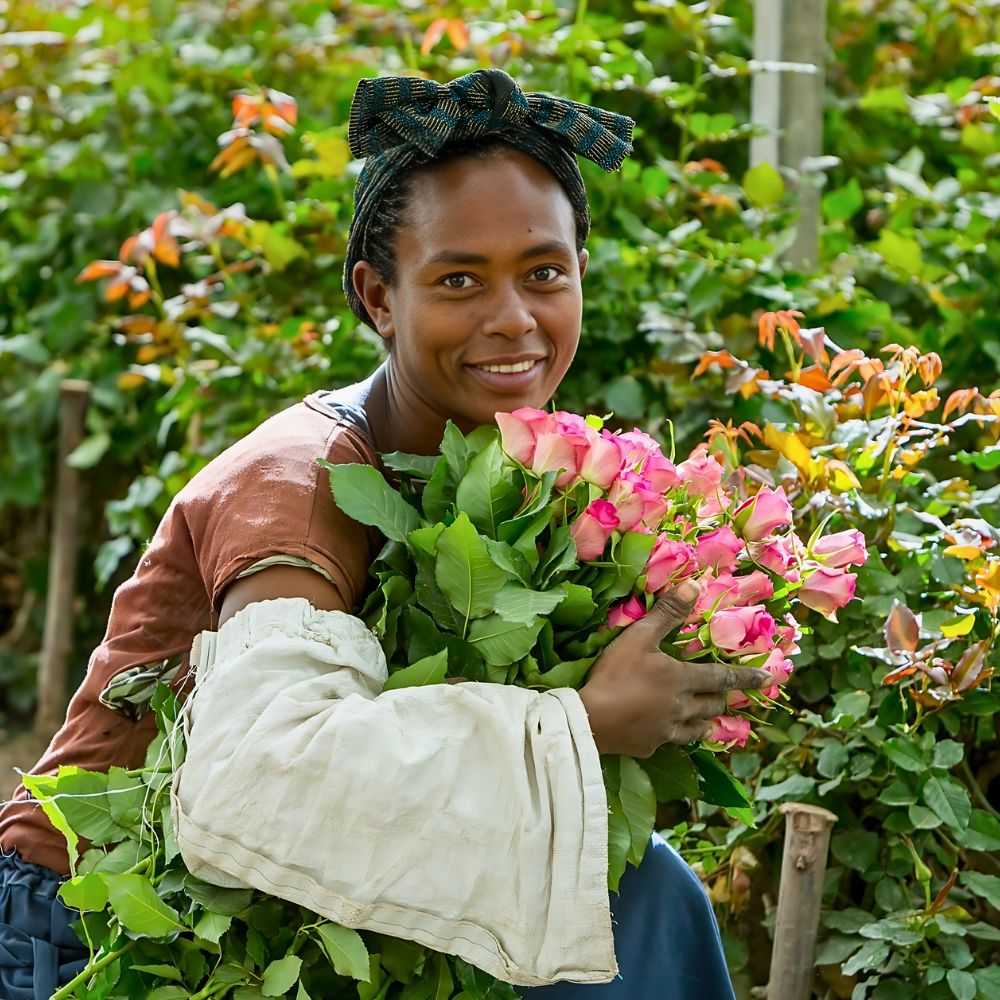
Ermiyas Solomon:
“On behalf of the Ziway Roses and Holla Roses team, I am truly honored to receive the FloraHolland Sustainability Award 2025! This award recognizes our circular economy initiative—converting rose green waste into compost, vermicompost, and biogas.
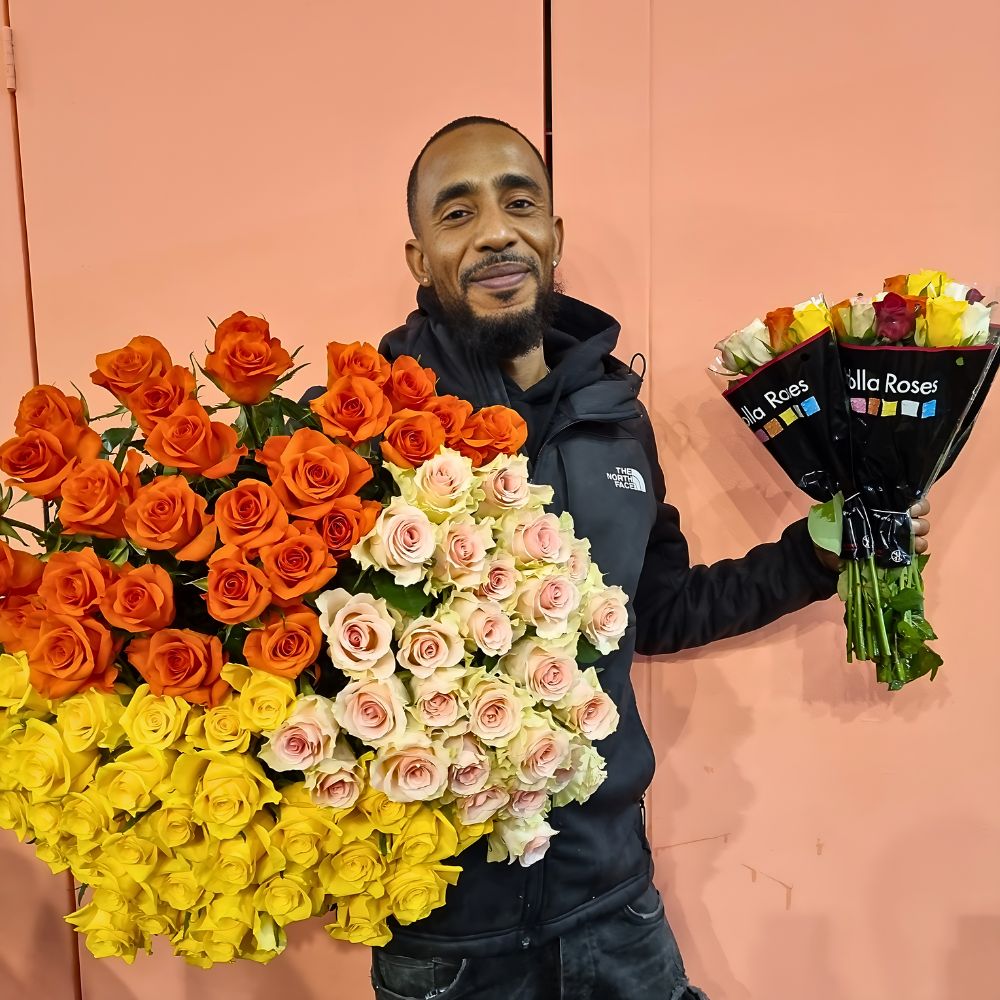
Winners Showcased Their Different Approaches Toward Sustainability
The Royal FloraHolland Sustainability Award represents an advancement from the previous Greenovation Award, broadening its focus to encompass social responsibility, responsible entrepreneurship, and technological innovation. It shows a growing awareness that sustainability necessitates attention to various aspects of business operations.
David van Mechelen, CEO of Royal FloraHolland, emphasized this, noting that with the Royal FloraHolland Sustainability Award, they do not only want to reward innovators, but above all, inspire the entire floriculture sector.
David van Mechelen:
“The three winners demonstrate that sustainability in floriculture is not only about environmental benefits, but also about people, cooperation, and future security."
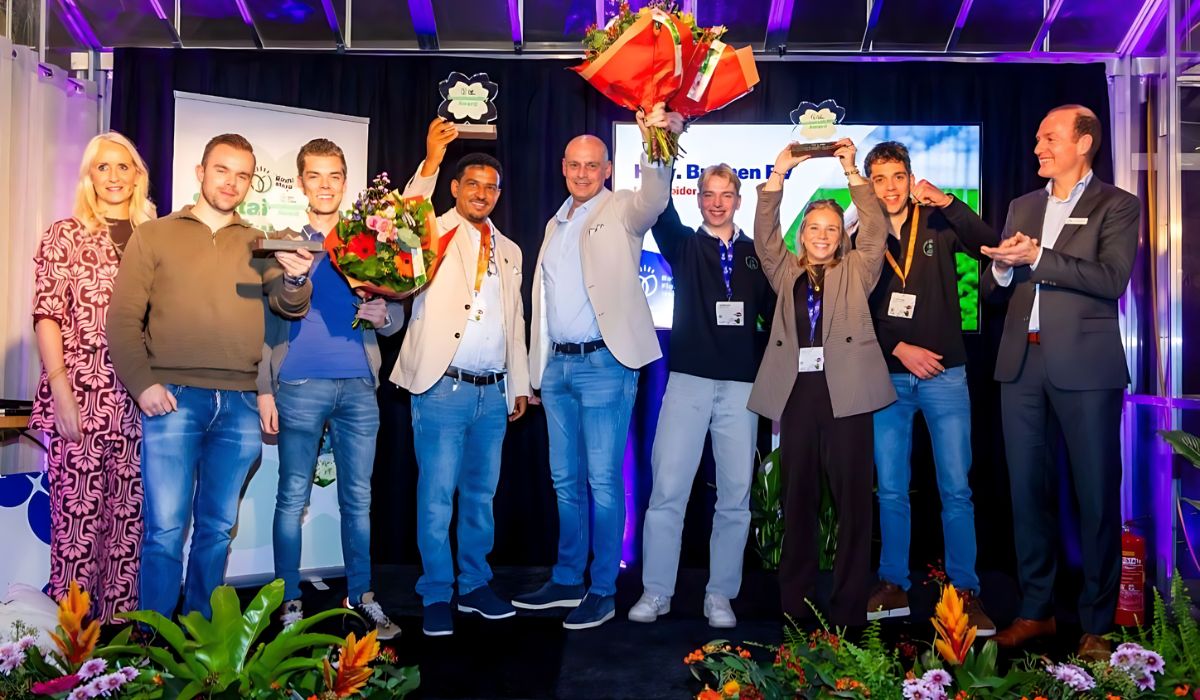
Handelskwekerij Bruinen BV won first place with their innovative biological plant protection using mini spiders, while J&P Ten Have secured third place for their UVC light system that enables natural growth regulation. Together, these three showcase different approaches toward sustainability and will receive ongoing communication support and strategic guidance to further develop their sustainable initiatives.
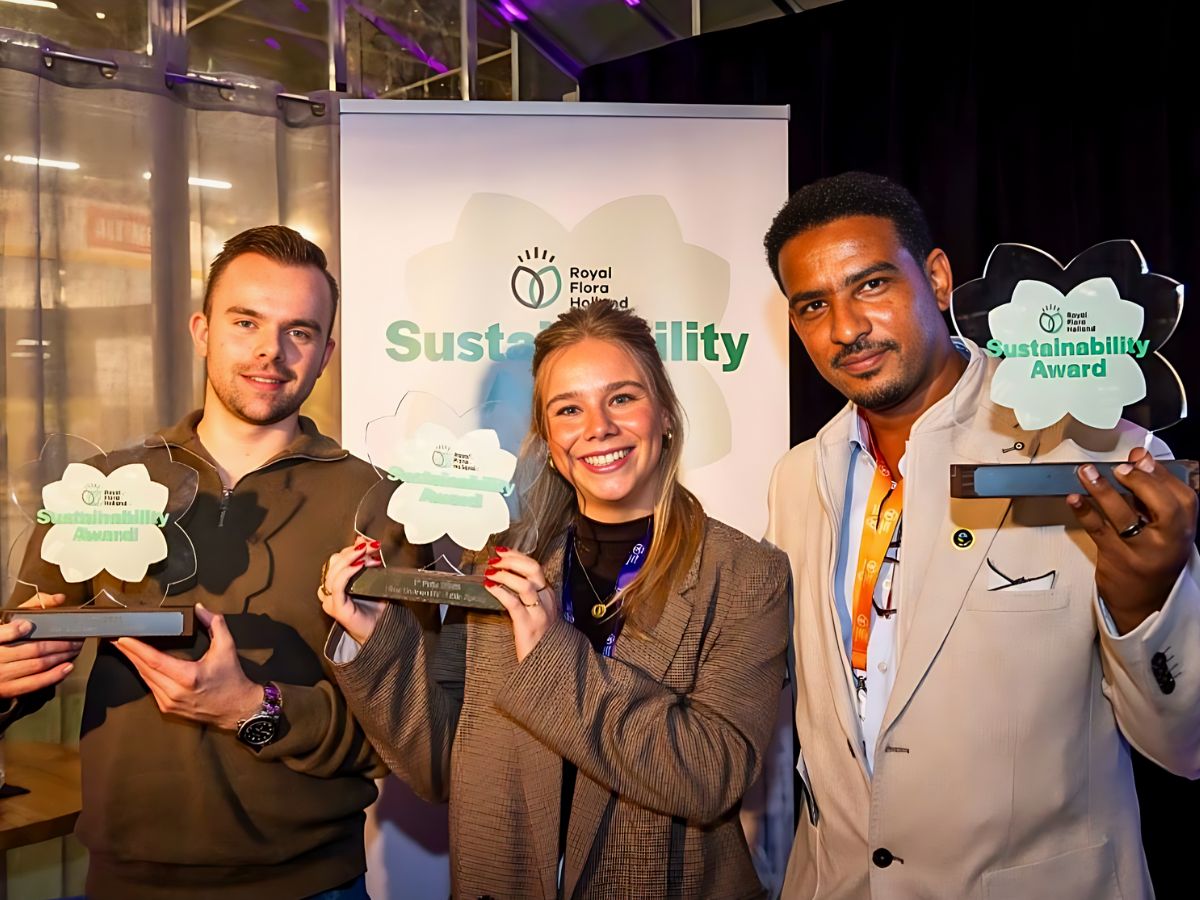
Circular Waste System and Taking Care of Society as Well
But for Holla Roses, it is more than just a circular waste system. The company understands that growing roses in Ethiopia means taking care of society as well. So, they have established an infrastructure that benefits workers and their families, including a school for employees' children, a hospital, and sports facilities. The integration of Fairtrade certification further shows this comprehensive approach.
The circular waste management system, nonetheless, positions Holla Roses well for evolving regulations around emissions and waste disposal because the grower has already built sustainability into its basic operations.
The grower’s approaches also illustrate different ways in which floriculture can be made eco-friendlier, the consideration for people and the environment, and long-term viability, as the flower industry contends with the pressure to cut carbon emissions and environmental impact.
Feature and header image by @holla_roses_bv.

